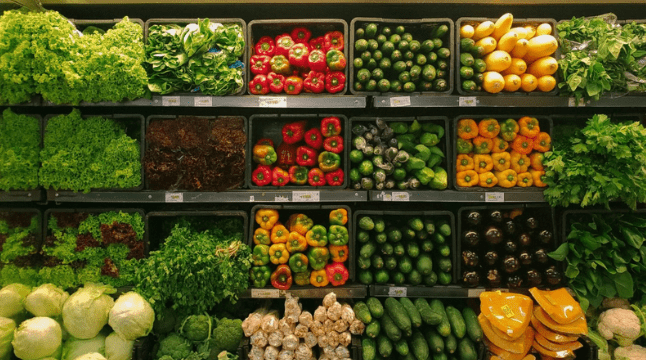At a time when consumers value convenience above all, zero-waste grocery stores offer a solution to the challenge of sustainable shopping. Imagine a store with no plastic wrappers, no single-use bags, and no food waste tossed into the garbage—just eco-friendly goodness that’s good for you and the planet. Zero-waste grocery stores are becoming the new best friend of environmentally conscious shoppers.
This comprehensive guide explains what zero-waste grocery stores are, why they matter, how to shop at them, where they’re popping up worldwide, and how to start your zero-waste journey today.
What Are Zero-Waste Grocery Stores?
Zero-waste grocery stores are retail outlets designed to reduce or eliminate waste generated by packaging, especially plastic. Unlike traditional supermarkets wrapped in plastic, these stores ask customers to bring their own reusable containers, jars, and bags. They offer bulk grains, nuts, spices, and fresh produce, allowing shoppers to buy exactly what they need with no extra packaging or food waste.
The goal is to minimize landfill waste, reduce carbon emissions from packaging production, and promote a circular economy where materials are reused and recycled continuously.
Why Zero-Waste Grocery Stores Matter
The Plastic Pollution Crisis
Millions of tons of plastic end up in oceans and landfills annually, harming ecosystems and wildlife. Traditional grocery packaging—plastic bags, wrappers, containers—is a major contributor to this problem, often used once and discarded without breaking down.
Packaging Footprint on the Environment
Packaging production and transportation consume massive energy and water resources. Zero-waste grocery stores lower the carbon footprint by eliminating packaging altogether.
Food Waste Reduction
Zero-waste stores let customers buy precise amounts, reducing food spoilage and waste. This benefits both your wallet and the planet.
How Zero-Waste Grocery Stores Work: Tips for Shopping
-
Bring Your Own Containers: Always carry clean, reusable jars, bags, or containers. BYOC is essential since most zero-waste stores prohibit plastic packaging.
-
Weigh Before You Fill: Use the store’s scale to weigh and label your containers’ tare weight before filling. This ensures you pay only for the product.
-
Start Small: Begin with a few containers and bags and gradually expand your collection for grains, liquids, nuts, and spices.
-
Explore Bulk Options: Bulk items range from dried beans, rice, oils, vinegars, to cleaning supplies—use this to customize your shopping.
-
Don’t Miss Fresh Produce and Refrigerated Goods: Many stores offer unpackaged fruits, vegetables, dairy, and meat. Use mesh or paper bags to reduce waste.
The Global Trend of Zero-Waste Grocery Stores
-
Global Movement: Zero-waste grocery stores are spreading from small European towns to bustling cities worldwide due to rising consumer demand.
-
Key Influencers: Initiatives like Plastic Free July and zero-waste influencers raise awareness and encourage lifestyle changes.
-
Government and Corporate Support: Some local governments and companies provide grants and incentives to support zero-waste initiatives.
Advantages of Zero-Waste Grocery Stores
-
Save Money in the Long Run: Less packaging means less waste disposal cost and fewer impulse buys, as you purchase only what you need.
-
Support Local and Ethical Growers: These stores often prioritize local, organic, and fair-trade suppliers, fostering healthier food systems.
-
Develop a Mindful Shopping Strategy: Zero-waste shopping cultivates awareness about consumption, waste, and carbon footprints, guiding responsible lifestyle choices.
How to Find Zero-Waste Grocery Stores Near You
-
Online Directories and Apps: Use websites like Zero Waste Home or apps like Bulk Locator to find stores by city or ZIP code.
-
Join Local Eco Communities: Environmental social media groups share info on local zero-waste shops and events.
-
Visit Farmers Markets: Many farmers markets now support zero-waste by allowing customers to bring containers.
Addressing Common Zero-Waste Shopping Struggles
-
Convenience and Accessibility: Zero-waste stores are still growing; incorporate zero-waste habits into your existing shopping routines gradually.
-
Start-Up Costs: Reusable containers can be an upfront investment but pay off in waste reduction and savings.
-
Learning Curve: Weighing containers and estimating quantities takes practice but quickly becomes routine.
Tips for a Successful Zero-Waste Shopping Experience
-
Plan meals ahead to buy precise amounts.
-
Clean containers thoroughly to avoid contamination.
-
Experiment with new bulk recipes and products.
-
Involve family and friends to build momentum.
-
Advocate for more zero-waste options locally.
Conclusion
Zero-waste grocery stores symbolize a crucial shift toward sustainability. Shopping this way reduces plastic and food waste, supports local economies, saves money, and encourages mindful living. The transition may require adjustment, but the benefits to the Earth and future generations are invaluable.
Start your zero-waste grocery journey today and join a global movement changing the world one refill at a time.
FAQs on Zero-Waste Grocery Buying
Q1: Can I bring my own container to a zero-waste grocery store?
A1: Most stores accept jars, cloth bags, and reusable containers, but check policies first. Containers must be clean.
Q2: Do zero-waste grocery stores cost more?
A2: Prices vary, but bulk items are often cheaper per unit. Buying only what you need saves money overall.
Q3: How do I tare containers at the store?
A3: Stores provide scales near bulk bins to weigh empty containers; mark the tare weight for checkout.
Q4: Can I buy fresh produce at zero-waste stores?
A4: Yes, many zero-waste stores offer unpackaged fresh fruits and vegetables stored in reusable bags.
Q5: Are zero-waste grocery stores available everywhere?
A5: Not yet, but their numbers are growing. Use online directories to find the nearest location.
Q6: How do zero-waste stores handle perishables and hygiene?
A6: They follow strict sanitation protocols and maintain clean bulk dispensers to ensure food safety.














